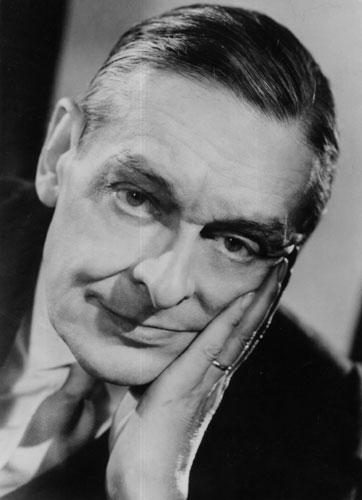Should We Stop Reading T.S Eliot?

Photo By: Wikipedia
As an English major, I’m required to take a few reading classes. A good reader can only be defined by how well she reads, right?
But it wouldn’t be so bad if not for this old, dead white guy known only as Thomas Stearns (or T.S.) Eliot.
There’s one English professor who, at any given opportunity, would try to include T.S. Eliot’s “The Wasteland” in our reading curriculum. And every time I see it, I involuntarily groan and ask the tired question, “WHY?!”
It’s not that the poem doesn’t have historical significance, like most forms of art, it’s a product of its time. It was just after World War I, so art decided to throw logic out the window and not stick to traditional realism. That in itself was a spark that grew into psychedelic, Pink-Floyd’s-the-Wall kind of vibe.
So, the time period is not my problem with it. I can get so angry at what happened in the past and how artists chose to respond to it.
My issue is the poem still makes no sense, and even Alec Guinness (or Obi Wan as some geeks call him) reading it could make me like it. It still feels like I need an exclusive membership to the Smarties’ Guild to understand all the references and even the parts that aren’t even written in English.
To top it off, I’m tired of learning about guys like T.S. Eliot in my writing and reading classes.
To give you a sense of what kind of man he was, get this: Eliot grew up here in America and later moved to Great Britain. While living there, he anglified himself to the point where he started speaking in a phony, warped, ridiculous, pretentious, semi-British accent. Don’t believe me? Take a listen.
Weird accent aside, Eliot is what most American authors we study are: a white and dead man.
Unfortunately, Eliot is part of a huge problem with these reading curriculums: the authors we study are middle-aged white men who lived before my grandparents were even born. Even Poe, Vonnegut and Twain, a few of my favorite authors, fall into this category. Very rarely do we study authors writing in the current century in reading classes.
There’s this idea that we have to respect the literary traditions that came before our time. Going by that logic, I agree. As a writer, it’s admirable to see how far we have come in terms of homing in tradition into modern works.
But that’s not the root of the problem. What good is tradition when women and people from other races couldn’t join in the fun?
From my perspective, old white men have always had the upper hand in everything. They always get the good stuff while everyone else is stuck with the dregs and scraps. The authors we study reflect a specific vision of America, but not exactly mine.
Sure, I may be as white as Wonder bread, but it would be nice to read from more women authors besides Emily Dickinson and Sylvia Plath.
There are poets like Elizabeth Acevedo. They tell entire narratives through verse, and they do so with fiery emotion. They relay stories of struggle and passion that I wish were seen more. I feel they reflect my world better because some of these poets are women. Some have seen struggles to gain power and reflect that in their work, and I feel included, like my voice is given a chance to be heard.
These dead white guys had their chance to make their voices heard for decades. Shouldn’t we give someone else a chance?
T.S. Eliot, I know you’re dead and buried, but do us a favor and sit down and shut up. You already had your turn. Why not give the floor to someone else? Preferably to someone with darker skin and/or is a woman. Isn’t it time to return to the Wasteland, where you belong?
